Morocco Travel Guide
- Danieka Strathdee
- Jul 29, 2024
- 13 min read
Updated: Jul 29, 2024
Embark on an enchanting voyage to Morocco Africa, where ancient traditions blend harmoniously with modern allure. From the bustling souks of Marrakech to the serene landscapes of the Sahara Desert, Morocco beckons travellers with its vibrant culture, diverse landscapes, and captivating history. Join us as we delve into the heart of this North African gem, uncovering its hidden treasures and unforgettable experiences.
ADVERTISEMENT
I recently travelled to Morocco from the UK and stayed in the heart of the medina, where just a short few weeks later the 6.8-magnitude earthquake hit after 11pm on September 8, devastating remote villages in the High Atlas Mountains and killing more than 3000 people; injuring almost twice that number. Morocco is a beautiful area and a must-visit destination. The communities are rebuilding after this devastating event and are heavily reliant on tourism and travellers. As Morocco navigates the aftermath of the earthquake, you have the opportunity to stand in solidarity with its people, embrace its cultural heritage, and forge meaningful connections that transcend borders. By approaching travel with empathy, respect, and a commitment to responsible exploration, you can help support Morocco's journey toward recovery and renewal.
Inside this Scoop – Our Morocco Travel Guide:
ADVERTISEMENT
Best Time to Travel Morocco: A Seasonal Guide
Embarking on a journey to Morocco promises a rich tapestry of experiences, from the bustling markets of Marrakech to the serene landscapes of the Sahara Desert. To make the most of your visit, consider the unique offerings of each season. Here's our Morocco travel advice:
Spring (March to May):
Mild Temperatures: Spring heralds pleasant weather, with temperatures ranging from 15 to 25 degrees Celsius (59 to 77 degrees Fahrenheit).
Blooming Landscapes: Witness Morocco in full bloom as flowers carpet the landscapes, creating a picturesque backdrop for your adventures.
Festival Season: Experience local festivals and events, celebrating traditions, music, and arts.
Summer (June to August):
Warm and Hot Temperatures: Be prepared for warmer weather, with temperatures often exceeding 30 degrees Celsius (86 degrees Fahrenheit).
Vibrant Atmosphere: Dive into the lively atmosphere of summer, especially in coastal areas and popular tourist destinations.
Festivals and Nightlife: Enjoy extended daylight hours, making it perfect for festivals, outdoor activities, and vibrant nightlife.
Autumn (September to November):
Moderate Temperatures: Experience comfortable temperatures ranging from 20 to 30 degrees Celsius (68 to 86 degrees Fahrenheit).
Harvest Season: Explore local markets filled with a bounty of fresh produce, including figs, dates, and pomegranates.
Cultural Events: Engage in cultural events and celebrations, providing insights into Morocco's diverse traditions.
Winter (December to February):
Mild Days, Cool Nights: Enjoy daytime temperatures around 15 degrees Celsius (59 degrees Fahrenheit) and cooler evenings.
Snow-Capped Atlas Mountains: Venture into the Atlas Mountains for a chance to see snow-capped peaks, offering a unique winter experience.
Cozy Atmosphere: Embrace the cozy atmosphere with fewer tourists, making it an ideal time for cultural exploration.
Each season in Morocco has a distinct charm, and the best time to visit depends on your preferences. Whether you seek the vibrant energy of summer, the moderate climates of spring and autumn, or the cozy ambience of winter, Morocco welcomes you with its warm hospitality and diverse landscapes.
Tips getting from the Airport
Navigating from the airport to your destination in Morocco is relatively straightforward, with several transportation options available:
Taxi: Taxis are a convenient way to reach your accommodation from the airport. Look for official taxis with meters and negotiate the fare before starting your journey. It's advisable to have some cash in Moroccan Dirhams (MAD) for payment.
Note: We got dropped off in the medina, and it seemed that the taxi service had arranged for a local to take our bags in a wagon to our hotel, they then asked for a tip. Just be cautious, it all happens pretty quickly so if you don't want that – be clear and say no/take your bags in your own hands.
Airport Shuttle: Many hotels and accommodations offer airport shuttle services for guests. Check with your accommodation provider in advance to see if they offer this service and arrange for a pickup.
Public Bus: Some airports in Morocco have public bus services connecting to the city center or major transportation hubs. These buses are typically affordable but may have limited schedules.
Private Transfer: For a more comfortable and hassle-free option, consider booking a private transfer service in advance. Private transfer companies can arrange for a driver to meet you at the airport and take you directly to your accommodation.
Car Rental: If you prefer the flexibility of having your own vehicle, you can rent a car from the airport. Many international car rental companies have counters at major airports in Morocco. Make sure to familiarize yourself with local driving regulations and road conditions before driving in Morocco.
Before your trip, research the transportation options available from the airport to your destination and choose the option that best suits your budget and travel preferences. Additionally, it's a good idea to have the address and contact information of your accommodation handy to provide to your driver or transportation service.
Must-see attractions in Morocco:
Marrakech Medina: Lose yourself in the vibrant maze of Marrakech's ancient medina, where bustling souks, historic palaces, and lively squares await exploration.
Fes el-Bali: Step back in time in the medieval city of Fes, home to the world's largest car-free urban zone. Wander through narrow alleys, visit historic mosques, and admire traditional craftsmanship in the city's artisan quarters.
Hassan II Mosque: Marvel at the grandeur of Casablanca's Hassan II Mosque, one of the largest mosques in the world. Admire its stunning architecture, intricate tilework, and breathtaking oceanfront location.
Sahara Desert: Embark on a desert adventure to witness the vast expanse of the Sahara Desert. Experience camel treks, overnight stays in Berber camps, and mesmerizing sunsets over the dunes.
Chefchaouen: Explore the enchanting blue-washed streets of Chefchaouen, nestled in the Rif Mountains. Admire the picturesque architecture, shop for local crafts, and hike to panoramic viewpoints overlooking the town.
Ait Benhaddou: Discover the ancient ksar of Ait Benhaddou, a UNESCO World Heritage Site and iconic filming location. Explore its well-preserved mud-brick structures, narrow streets, and panoramic views of the surrounding desert landscape.
Jardin Majorelle: Escape the hustle and bustle of Marrakech at the tranquil Jardin Majorelle. Wander through lush gardens, vibrant plantations, and the iconic blue villa once owned by fashion designer Yves Saint Laurent.
Volubilis: Journey to the Roman ruins of Volubilis, located near the city of Meknes. Explore ancient temples, intricate mosaics, and well-preserved structures dating back to the 3rd century BC.
Essaouira: Experience the coastal charm of Essaouira, a picturesque port city known for its blue fishing boats, sandy beaches, and vibrant arts scene. Explore its historic medina, stroll along the ramparts, and indulge in fresh seafood.
Atlas Mountains: Immerse yourself in the breathtaking landscapes of the Atlas Mountains. Trek through verdant valleys, visit traditional Berber villages and witness panoramic views from mountain passes like Tizi n'Tichka.
ADVERTISEMENT
Best things to do in Morocco:
Explore the Marrakech Medina: Get lost in the labyrinthine streets of Marrakech's old city, where vibrant souks, historic palaces, and bustling squares await exploration. Don't miss iconic landmarks like the Koutoubia Mosque and the Bahia Palace.
Visit the Sahara Desert: Embark on a desert adventure to experience the vast expanse of the Sahara. Enjoy camel rides over the dunes, spend a night in a traditional Berber camp under the stars, and witness breathtaking sunrises and sunsets.
Discover Fes el-Bali: Step back in time in the medieval medina of Fes, a UNESCO World Heritage Site. Explore its narrow alleyways, visit historic madrasas and mosques, and immerse yourself in the city's rich cultural heritage.
Marvel at the Hassan II Mosque: In Casablanca, admire the architectural marvel of the Hassan II Mosque, one of the largest mosques in the world. Take a guided tour to appreciate its intricate craftsmanship and stunning oceanfront location.
Experience Chefchaouen: Wander through the picturesque blue streets of Chefchaouen, nestled in the Rif Mountains. Enjoy the tranquil atmosphere, shop for local crafts, and hike to panoramic viewpoints overlooking the town.
Visit Ait Benhaddou: Explore the ancient ksar of Ait Benhaddou, a UNESCO World Heritage Site and famous filming location. Marvel at its well-preserved mud-brick architecture and panoramic views of the surrounding desert landscape.
Relax in Essaouira: Escape to the coastal charm of Essaouira, known for its whitewashed buildings, sandy beaches, and laid-back atmosphere. Stroll along the historic ramparts, visit art galleries, and indulge in fresh seafood.
Trek the Atlas Mountains: Embark on a trekking adventure in the Atlas Mountains, home to breathtaking landscapes and traditional Berber villages. Hike through lush valleys, summit mountain peaks, and enjoy spectacular views.
Explore the Blue City of Chefchaouen: Wander through the narrow streets of Chefchaouen, famous for its blue-washed buildings and stunning mountain backdrop. Explore the Medina, visit local markets, and hike to nearby waterfalls.
Shop in the Souks: Get lost in the bustling souks of Morocco's cities, where you can find everything from spices and textiles to handmade crafts and leather goods. Bargain with local vendors and immerse yourself in the vibrant atmosphere.
Navigating Morocco's Medina: Embracing Culture, People, and Serpentine Charms
Morocco's medinas, with their labyrinthine alleys, bustling markets, and vibrant atmosphere, offer you an immersive journey into the heart of Moroccan culture. Navigating these ancient quarters can be both exhilarating and enchanting, with encounters ranging from lively souks to unexpected encounters with serpentine charmers. Here's our guide on how to embrace the rich tapestry of Morocco's medinas while navigating their cultural nuances and unique experiences.
Embracing Cultural Diversity: Morocco's medinas are melting pots of cultural diversity, where Berber, Arab, and Andalusian influences converge to create a captivating mosaic of traditions and customs. Take time to explore the medina's hidden corners, interact with local artisans, and savour the flavours of Moroccan cuisine in bustling cafes and street-side eateries.
Connecting with Local People: One of the most enriching aspects of exploring Morocco's medinas is the opportunity to connect with its warm and welcoming people. Strike up conversations with shopkeepers, artisans, and residents, and immerse yourself in the rhythms of daily life. Whether sharing a cup of mint tea or bargaining in the souk, these interactions offer insights into Moroccan hospitality and way of life. With that being said, one shop owner offered my Mum 1000 camels to buy me so it's important to also keep your wits about you.
Navigating the Souks: The medina's winding alleys and bustling souks can be both enchanting and overwhelming for first-time visitors. Embrace the spirit of adventure as you wander through the maze-like streets, navigating past colourful stalls selling everything from spices and textiles to handmade crafts and traditional wares. Allow yourself to get lost in the labyrinth, knowing that each turn may reveal a hidden gem or unexpected discovery.
Serpentine Encounters: In Morocco's medinas, serpentine charmers mesmerise passersby with their hypnotic performances, coaxing cobras and vipers from their woven baskets. While these encounters may seem surreal, they are a time-honored tradition in Moroccan culture. Personally, I didn't agree with this kind of snake treatment and understand that a lot of locals seek out the snakes in the Sahara, take out their fangs and starve them so they are low energy and essentially slowly dying when they are in the medina. If you lock eye contact, they will usually come over with the snake... so if you want to avoid it – just avoid eye contact and walk with purpose.
Cultural Sensitivity and Etiquette: As you navigate Morocco's medinas, it's important to observe cultural sensitivity and etiquette. Dress modestly, particularly when visiting religious sites or interacting with local communities. Seek permission before taking photographs, especially of people or private spaces, and be mindful of local customs and traditions. If you are in the medina taking photos of music or entertainers they will usually run up to you and ask for money!
Exploring Hidden Gems: Beyond the bustling souks and main thoroughfares, Morocco's medinas harbour hidden gems waiting to be discovered. Venture off the beaten path to uncover tranquil courtyards, ornate riads, and centuries-old landmarks that offer glimpses into Morocco's rich history and architectural heritage. From the tranquil beauty of a secret garden to the intricate tilework of a hidden mosque, these hidden gems offer moments of serenity and contemplation amidst the medina's lively chaos.
Where to find and buy alcohol in Morocco / Can you buy alcohol in Morocco?
In Morocco, alcohol is not as readily available as in many other countries due to religious and cultural considerations. However, it is still possible to find and purchase alcohol in certain establishments:
Supermarkets and Hypermarkets: Supermarkets and hypermarkets like Marjane, Carrefour, and Acima may have alcohol sections. We bought from Carrefour and they had a big section.
Most Hotels and Some Restaurants: Examples include La Mamounia in Marrakech, Rick's Café in Casablanca, and Le Trou au Mur in Essaouira.
Licensed Bars and Clubs: Examples include Sky 28 in Casablanca, Theatro Nightclub in Marrakech, and Taros Café in Tangier.
Liquor Stores: Names of liquor stores can vary widely and may include local names or generic terms like "Alcohol Shop" or "Wine Store."
Duty-Free Shops: Duty-free shops are typically located in airports and may have names like "Duty-Free Marrakech Airport" or "Casablanca Duty-Free."
Morocco is a land of contrasts, where ancient traditions and modern innovations converge to create a tapestry of unforgettable experiences. Whether you're navigating the bustling souks of Marrakech, trekking through the Sahara Desert, or savouring the flavours of Moroccan cuisine, each moment in this captivating country is a journey of discovery. Embrace the magic of Morocco with this travel guide and let its mystique captivate your soul, leaving you with memories to last a lifetime.
Can you drink alcohol in Morocco?
Yes, you can drink alcohol in Morocco, but there are specific guidelines and cultural norms to be aware of:
Legal Regulations: Alcohol is legal in Morocco, but it is regulated. You can purchase and consume alcohol in licensed establishments such as hotels, restaurants, and bars that cater to tourists.
Local Customs: Morocco is a predominantly Muslim country where drinking alcohol is not widely practiced in public. It’s important to consume alcohol discreetly and respect local customs. Public drunkenness is not tolerated and can lead to legal issues.
Retail Availability: Alcohol is available in many supermarkets, especially in larger cities and tourist areas. However, in more conservative regions, it might be less accessible. See list above!
Hotel and Restaurant Policies: Many hotels and restaurants that cater to tourists will serve alcohol, including local Moroccan wines and international spirits. It’s a good idea to check in advance if you have specific preferences or requirements.
Transport and Consumption* Avoid consuming alcohol in public places and be mindful of local laws regarding drinking and driving. The legal blood alcohol limit is low, and penalties for driving under the influence can be severe.
Cultural Sensitivity: Always be respectful of Moroccan culture and traditions. If you are travelling with a group or visiting rural areas, be extra considerate of local customs and practices.
By being aware of these guidelines and respecting local norms, you can enjoy your time in Morocco while adhering to cultural expectations.
ADVERTISEMENT/S
Recommended item:
Morocco Travel Adaptor: I would recommend investing in a universal adaptor like this, it's what I use and saves you buying one for each country! Link here
FAQ's Travel Morocco
Is it safe to travel to Morocco?
Morocco is a vibrant and culturally rich destination that attracts travellers from around the world. When it comes to safety, Morocco is generally considered a safe country to visit. However, like any travel destination, it’s important to stay informed and take common-sense precautions.
1. Travel Advisories: Check your government’s travel advisories before you go. While Morocco is usually safe for tourists, advisories can provide valuable information on current conditions.
2. Personal Safety: Petty crime, such as pickpocketing, can occur in crowded areas or tourist spots. Stay aware of your surroundings, especially in busy markets and public transportation.
3. Respect Local Customs: Morocco is a predominantly Muslim country with specific cultural norms. Dress modestly, particularly when visiting religious sites or rural areas, and be mindful of local customs and traditions.
4. Transportation: Use reputable transportation services and be cautious when using taxis. It’s advisable to use registered taxis or ride-sharing apps where available. Watch out for scammers, and note that if people on the street offer to carry your bags they expect a tip at the destination (happened to us through the Medina).
5. Health Precautions: Ensure you have the necessary vaccinations and carry any required medications. Tap water may not always be safe to drink, so it’s best to use bottled water.
6. Emergency Contacts: Familiarize yourself with local emergency numbers and the location of your country’s embassy or consulate in Morocco.
By staying informed and respecting local customs, you can enjoy a safe and memorable trip to Morocco. As with any travel, being prepared and vigilant will help ensure a smooth and enjoyable experience.
What are the top tourist attractions in Morocco?
Morocco is renowned for its rich history and vibrant culture. Top tourist attractions include the bustling medinas of Marrakech and Fes, the stunning architecture of the Hassan II Mosque in Casablanca, and the breathtaking Sahara Desert. Don't miss exploring the blue streets of Chefchaouen and the historic ruins of Volubilis.
What is the best time to visit Morocco?
The best time to visit Morocco depends on your interests. For pleasant weather and fewer crowds, consider travelling during spring (March to May) or fall (September to November). Summer can be quite hot, especially in the desert regions, while winter is ideal for exploring the Atlas Mountains and coastal areas.
What is Moroccan cuisine like?
Moroccan cuisine is a flavourful blend of spices and ingredients. Must-try dishes include tagine (a slow-cooked stew), couscous, pastilla (a sweet and savoury pie), and harira (a traditional soup). Don’t forget to sample Moroccan mint tea, a cultural staple enjoyed by locals and visitors alike.
Do I need vaccinations to travel to Morocco?
While no specific vaccinations are required for entry into Morocco, it's recommended to be up-to-date on routine vaccines. Hepatitis A and B, typhoid, and rabies vaccinations may be suggested depending on your travel plans and activities. Always consult a travel health specialist before your trip.
What should I pack for a trip to Morocco?
When packing for Morocco, include lightweight and modest clothing, especially if you plan to visit religious sites. Comfortable walking shoes are essential for exploring the medinas and markets. Don’t forget sunscreen, a hat, and a reusable water bottle. A good travel adapter is also necessary for charging your electronics.
Is it safe to travel to Morocco solo?
Travelling solo in Morocco is generally safe, but it’s important to take standard precautions. Be aware of your surroundings, avoid isolated areas, and respect local customs. Joining guided tours or travelling with a group can also enhance your safety and experience.
How can I get around Morocco?
Morocco offers various transportation options, including trains, buses, taxis, and car rentals. The train network is well-developed and connects major cities, while buses and shared taxis are common for shorter routes. For more flexibility, consider renting a car, but be prepared for local driving conditions.
What are some cultural norms to be aware of in Morocco?
Respect for local customs is crucial in Morocco. Dress modestly, especially in rural areas and religious sites. It’s customary to greet people with a handshake and use the right hand for eating and giving gifts. Bargaining is common in markets, so feel free to negotiate prices.
Can I use credit cards in Morocco?
Credit cards are widely accepted in major cities and tourist areas, but it's a good idea to carry some cash for smaller establishments and markets. ATMs are available in cities, but be aware of potential foreign transaction fees from your bank. It is also VERY common that ATMs have run out of cash, so it's best to do it in the morning first thing or take into account not being able to get cash out for a few days. We experienced this a lot when we were there.
What languages are spoken in Morocco?
Arabic is the official language of Morocco, with Darija (Moroccan Arabic) being the most commonly spoken dialect. French is also widely used in business and tourism. English is increasingly spoken in tourist areas, but learning a few basic phrases in Arabic or French can be helpful.
_edited.png)
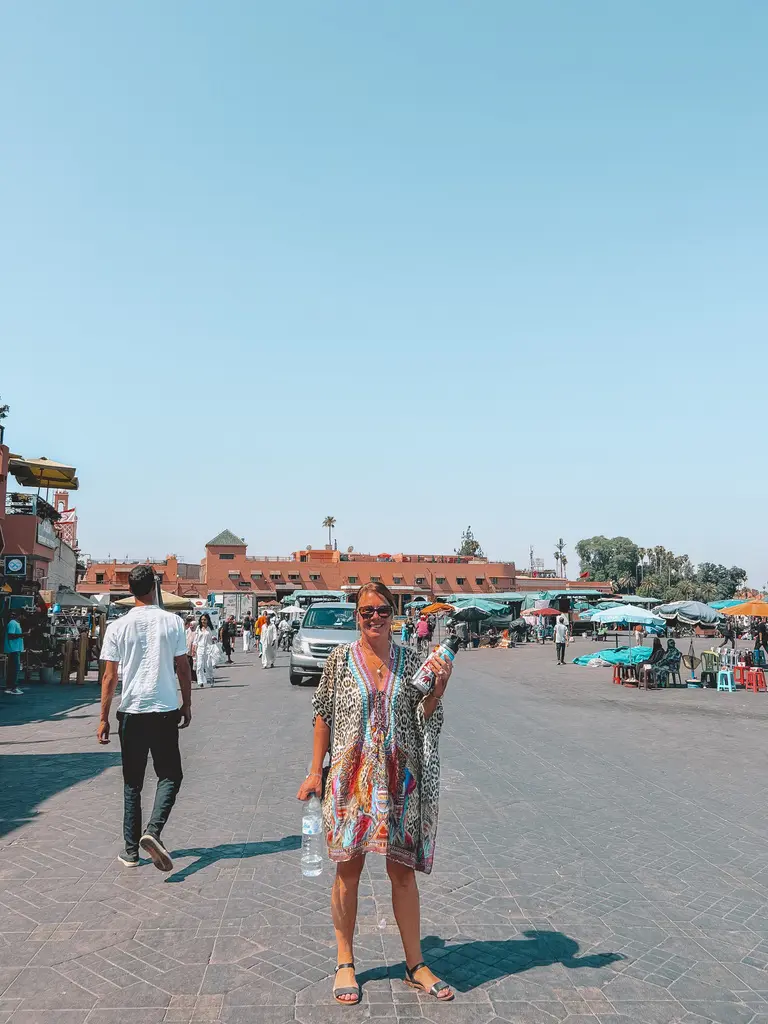
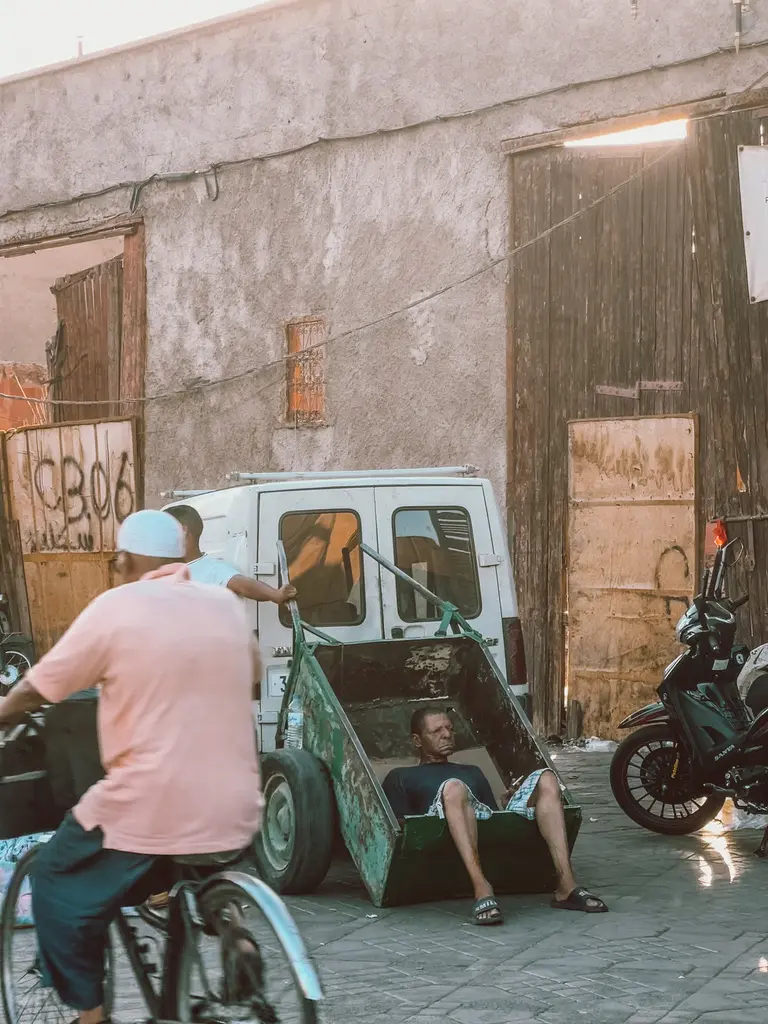
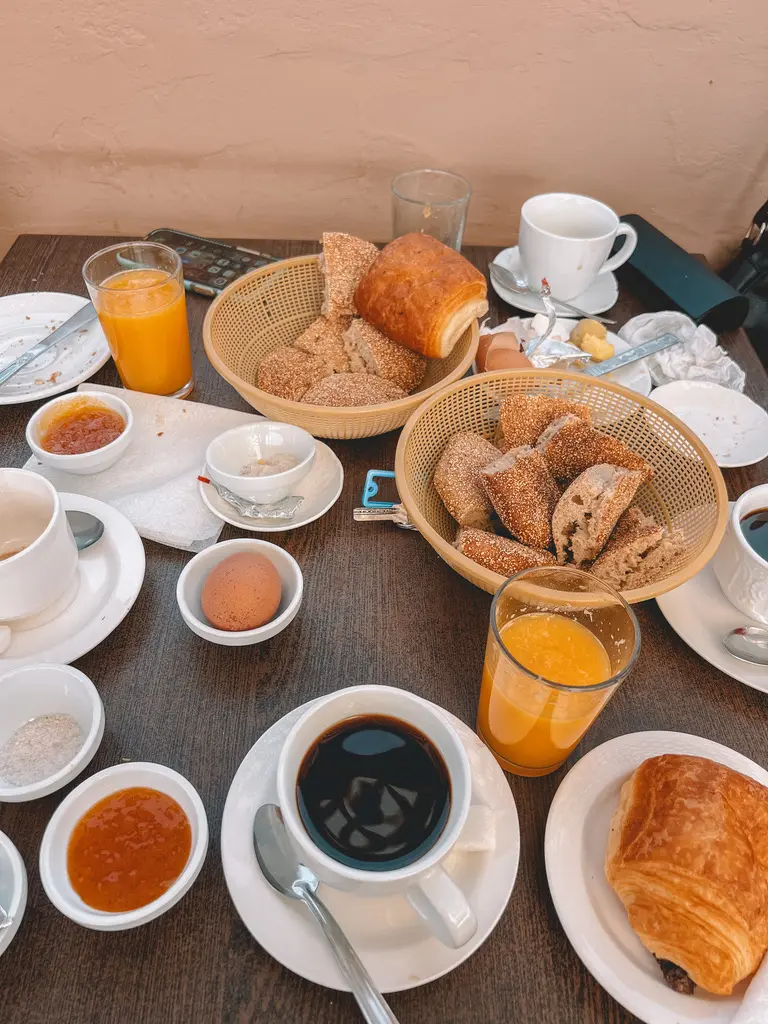
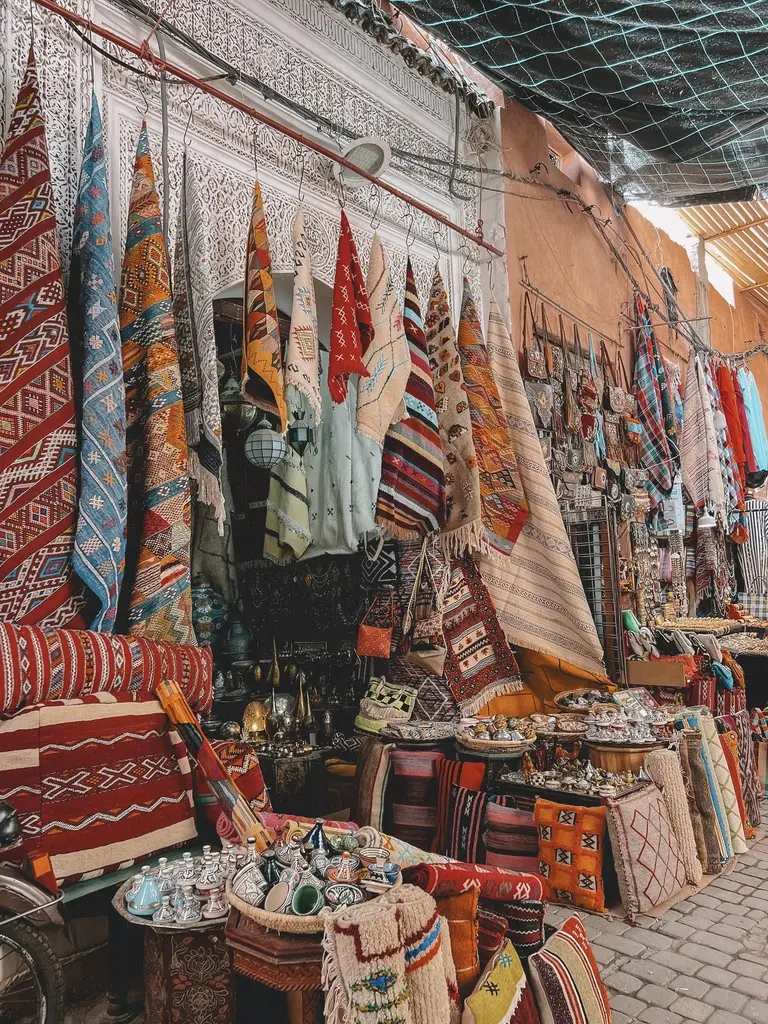
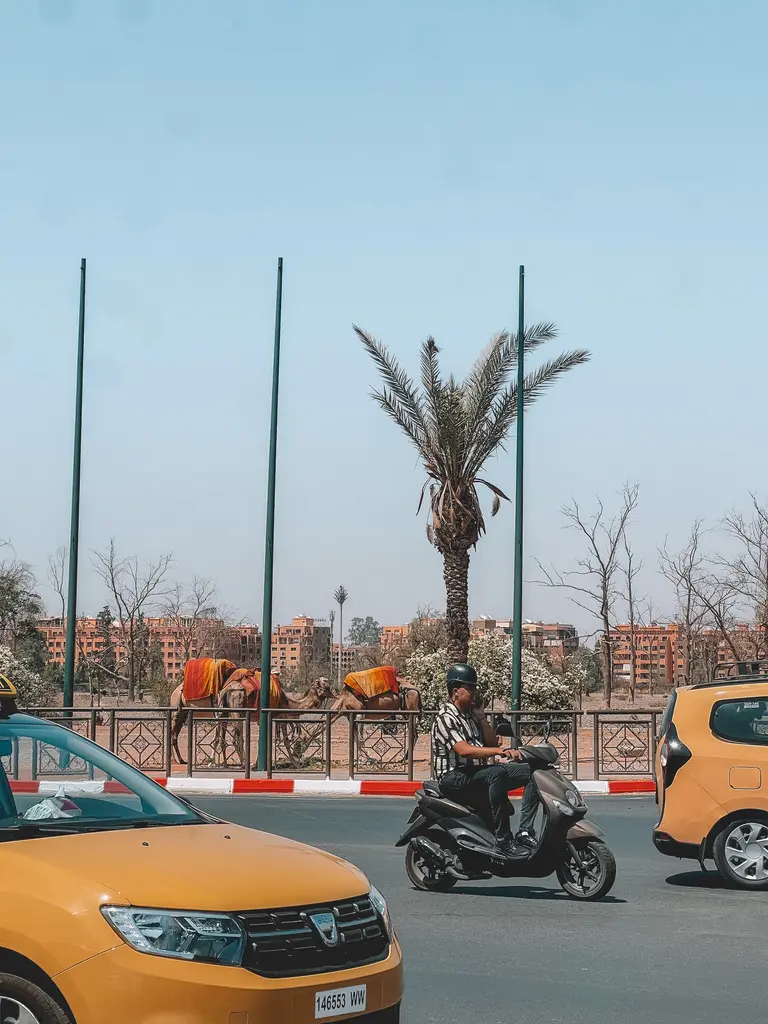

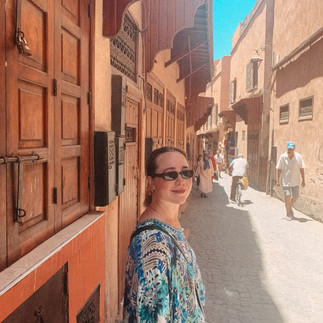






















































コメント